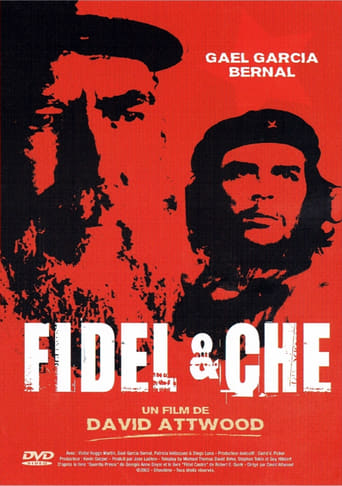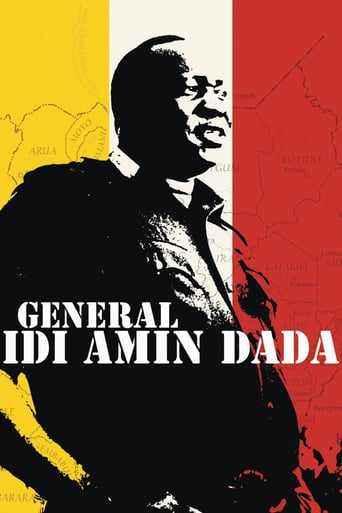


General Idi Amin Dada
Filmmaker Barbet Schroeder shows the Ugandan dictator meeting his Cabinet, reviewing his troops, explaining his ideology.
-
- Cast:
- Idi Amin , Fidel Castro


Similar titles
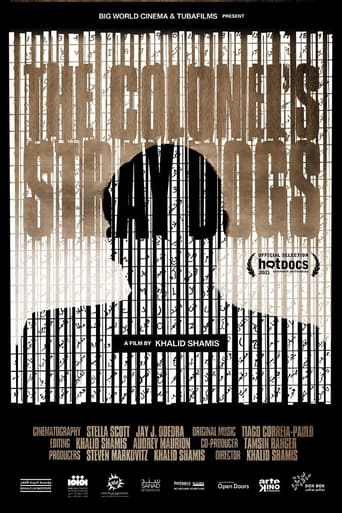

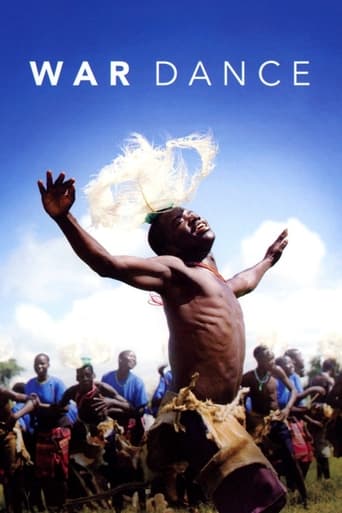

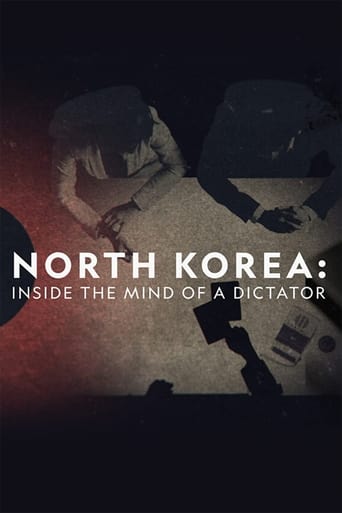



Reviews
Just what I expected
A Major Disappointment
Unshakable, witty and deeply felt, the film will be paying emotional dividends for a long, long time.
This is a gorgeous movie made by a gorgeous spirit.
Watching Forest Whitaker's performance as Ugandan military dictator Idi Amin in 2006's slightly disappointing The Last King Of Scotland, and then watching this, Barbet Schroeder's fantastic 1974 documentary about the same man, you have to applaud Whitaker's Oscar winning depiction. He not only grasped the man's sense of humour and desire for approval, but his terrifying ferocity which led to Amin being one of the most loathed and feared rulers in recent history. Yet if ever an Oscar was truly deserved, the Academy should have handed Idi Amin himself the award for Best Actor in 1974. The term 'autoportrait' (self-portrait) is cleverly used in the title, as that is exactly what it is. This might seem like a fly-on-the-wall depiction of a man narrating through his everyday duties, yet the film is very much controlled as much as Kevin Macdonald's fictional film was. Only it's not the director that is calling the shots in this film.The film is one-half cinema verite and one half an Amin vanity project, and plaudits to Schroeder to let it happen, as it reveals much more about Amin as it would if he had no participation at all, other than in front of the camera. In one scene, Amin arrives by helicopter at a small town and is greeted by a horde of screaming townsfolk, waving flags and clapping in anticipation. However, we are told, the scene has been completely set up for the documentary by Amin. Without repeatedly informing us of the influence he had on the making of the film, and on Schroeder himself, we are allowed to sit back and watch this monster bend and manipulate the truth for his own benefit. He is seen in a meeting with his ministers laying out his ideals and his expectations for his country. In this scene, Amin plays the role of both serious and committed leader, and approachable joker. He warns one of his ministers that he will take action and replace him should he fail to inform him about an aspect of his work again, to which the minister stares down and nods in understanding. We are informed by the narrator that his body is found dead in the River Nile a couple of weeks later.The film depicts both the political and social sides of Amin. As well as his claims to being the 'last king of Scotland' and his invitation to Queen Elizabeth to visit Africa and meet 'a real man', it also shows the increasingly uneasy relationship that Amin and Uganda had at the time with neighbouring country Tanzania and their President Julius Nyerere. Amin would have you believe otherwise, laughing off these claims and joking that the two have a friendly and informal relationship (the two countries would eventually go to war between 1978 and 1979, leading to the overthrowing of Amin's regime). We also see him with his children from many wives (he was a polygamist, marrying six women) and taking Schroeder and his crew on a boat trip down the River Nile, pointing out the wildlife and talking about Uganda being the most beautiful place on the planet.It is a terrifying insight in how politicians and military rules can use the media as a propaganda tool, and what a lack of respect they have for their people. You get the feeling throughout the film that Schroeder would like to pose more trying questions to Amin, yet because of the likelihood that the film would be shut down should he be challenged, Schroeder is forced to indulge Amin's desires. In a satisfying climax, which sees Amin allowing himself to be questioned by a board of doctors in a bid to show his accessibility, the camera zooms in close as he sits speechless after being confronted with a difficult question, and the volume on his microphone is turned up to maximum to capture every quiver in his breathing, and the thumping of his ever increasing heartbeat. The documentary was forced to be edited and released in two versions - one hour-long version in Uganda, and the full length version everywhere else. Amin sent spies to France to make extensive notes on the full film, which lead to the kidnapping of over a hundred French citizens residing in Uganda. According the Schroeder, he was forced to re-edit the film in order for the captives to be released. The film lay in this state until Amin's fall from power, to which the film was restored and re-released in it's entirety. It could almost be viewed as a companion piece to Leni Reifenstahl's landmark propaganda documentary Triumph Of The Will, both of which show the length that military rulers are willing to go in order to manipulate their people. It is confusing as to why Schroeder would go on to make standard Hollywood pap such as Kiss Of Death and Murder By Number, as this is a fascinating insight into the mind of a fascinating man. www.the-wrath-of-blog.blogspot.com
This documentary film is extraordinary in its own right. However, it is the interviews with director Babet Schroder (found on the DVD release of the film), specifically his retelling of the events around the time of the premiere of the movie in Paris, that propel this film to the level of incredible.Idi Amin's Autoportrait is most relevant today for its capacity to show an instance before more secretive, media-savvy dictators became the norm. Leaders today are of course still perfectly willing to say absurd things on film but, unlike that of Idi Amin's Autoportrait, today's spin is formidable. Key to this film's relevance is that one's imagination need not go far to consider what similarly candid documentaries of certain infamous dictators might look like if footage of them also escaped editing by political pressure. Following the premiere, this film was temporarily edited due to pressure from Idi Amin but thankfully was later restored to become an incisive portrait of the man. Such a portrait of any world leader would probably be quite difficult if not impossible today, making it a very relevant benchmark for those interested in how today's dictators interact (or don't) with media they don't fully control. Among other things, this film is especially of use for those interested in the extremes of state-society relations.
I have no idea what the "irrelevant now" comment means. That comment in itself is "irrelevant" and quite "idiotic." Meglomaniac dictators will be around forever. This was the rarest of rare portraits of one. It wasn't a single interview on 60 Minutes, it was a long month-long look into the dictator.While it doesn't go into the holocaust he perpetrated on the Ugandans (a very valid point above,) the final meeting with the doctors shows exactly the fear and paranoia he felt. It is in the final scene; with Amin breathing heavily into the microphone, gulping down spit, eyes darting around the room in fear, that we can see what led him to kill 300-500,000 of his own people.Also, when Idi does his Crocodile Hunter impression ("there are more crocodiles here than anywhere in ze vhurld") it is more jarring because it's where and whom he fed the bodies of those he murdered.Keep in mind as well, that the murders were only beginning when the film was made. The film is effective in showing what led to the holocaust of the Ugandan people.
I recently watched Orson Welles "Citizen Kane". And then it came to me: Barbet Schroeder's "autoportrait" - albeit a documentary about a real tyrant, and one of the bloodiest ever at that is in important parts designed directly after the great masterwork of the 1940s. The impression of watching something staged that is apparently real, that's what is so fascinating about this movie.MINOR SPOILERS AHEADIt starts with a terrific close up of the portraited: Idi Amin Dada does not whisper "Rosebud". He just breathes heavily, shifting his eyes attentively from left to right and back it's just as enigmatic. His Xanadu is a Wildlife Park with crocodiles, elephants and exotic birds, a rooftop swimming pool and rolling grassland, where he enacts the destruction of Israel - tanks, jet planes, helicopters and walky-talkies included. In short: The movie shows us Uganda as a boy's dream.There are no banquets with ice figurines, but there is a "non confidential" cabinet meeting, with rows of identical attaché cases neatly aligned on the long conference table. (You wonder: Were there really no props, no directions at all from the film crew?) There are no showgirls to fête Idi Amin, but the tyrant joins a traditional dance at a formal dinner party, stomping around and wielding a spear with apparent glee. There is no failed opera singer that has to be applauded into success, instead Idi Amin claps at a crocodile after having asked the film crew "shall I make it move"? The crocodile does not or cannot comply with Amin's orders - no one knows what happened to it afterwards.Like in Citizen Kane, dreams are forced to become true. In fact, they overtake reality with all the horrible consequences this entails. Both movies are about characters with undeniable charisma who are powerful but for ever immature. One of them is fictional, the other is not. This does not really matter, it actually proves that certain behavior patterns are timeless and universal. They should be guarded closely in the presently globalized world.

